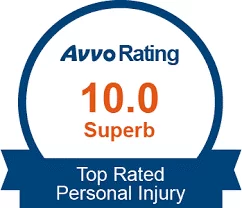Every confident and practiced driver knows that one moment of anxiety they face while trying to make a left-hang turn. 61% of car accidents that occur at an intersection in the United States involve a left-hand turn. It is therefore not surprising at all that almost everyone believes that in case of a left-hand turn accident, the person taking the turn is responsible. But that might not be the case every time.
Why is a left-hand turn accidents dangerous?
A left turn is one of those tricky accident scenarios where it is difficult to easily point to the driver at fault. We have all been at an intersection, waiting impatiently in the left lane for either the on-coming traffic to pass, or for their signal to turn yellow, so we can find that rare opening and make a swift turn. We have also been on the other side, approaching a yellow light at an intersection, but (over)confidently thinking we can make it through to the other side before the lights turn red.
This critical juncture end up creating a very large number of car accidents and tricky accidental injury claims. Left-hand turns are significantly dangerous, and require the driver to decent judgement about car speeds, size of the vehicle they are driving, and an understanding of timings with regards to the yellow lights turning red. In such a scenario, not being 100% present could lead to a collision between a left-turning car and an oncoming car from the opposite direction.
Who is at fault in such a collision?
Traffic laws across majority of the states mandate that the driver making a left turn must patiently wait till all the oncoming traffic has passed or the lights have changed. Due to this, it is naturally assumed that in a left-hand turn accident, the turning driver is at fault.
However, in reality, this determination depends entirely on the specifics of the accident. As Georgia employs the ‘at fault’ rule, aggrieved party in a motor vehicle accident most provide solid proof of negligence to seek compensation. Negligence can be proved by showing that –
- The accused driver has a responsibility not to injure you, but in this situation, failed to live up to that duty
- There is a connection between the other driver’s responsibility and your injury
- You suffered damages, or a financial loss, as a result of the accident
What are the exceptions?
There are several scenarios where the turning driver should not be considered at fault in a left-hand turn accident. These exceptions negate the automatic attachment of blame and liability on the driver making the left turn –
- The oncoming vehicle approaching the intersection is moving at a very high speed and this is unable to stop even on seeing the other vehicle making a left turn. This is very difficult to establish without traffic enforcement cameras
- The incoming vehicle, intentionally or unintentionally, drives off through a red traffic light
- The vehicle making the left turn started its turning maneuver when it was safe to do so and traffic was clear, but a last minute, unexpected event made the car slow down its maneuver. These too can only be proved through enough video evidence.
What should you do after a left-hand turn accidents?
Have you recently been in a left-hand turn accident, but are unsure of your level of fault? An auto accident attorney can help you breakdown the details of the accident, determine fault, evaluate potential (if any) liability and advise on the best legal action to take. A general rule to always remember in the aftermath of a car accident is to file a police report, and keep a copy that can be used ahead.
Georgia’s Code 9-3-33 allows its anyone involved in a car accident up to 2 years to file an injury claim. However, it is wiser to find a trusted, well-known lawyer to manage all the formalities and negotiations with law enforcement and insurance companies immediately after and invest your time and efforts in recovery.
Contact Greathouse Trial Law and set up a free consultation to get clarity on your claim and help you build the best case.


